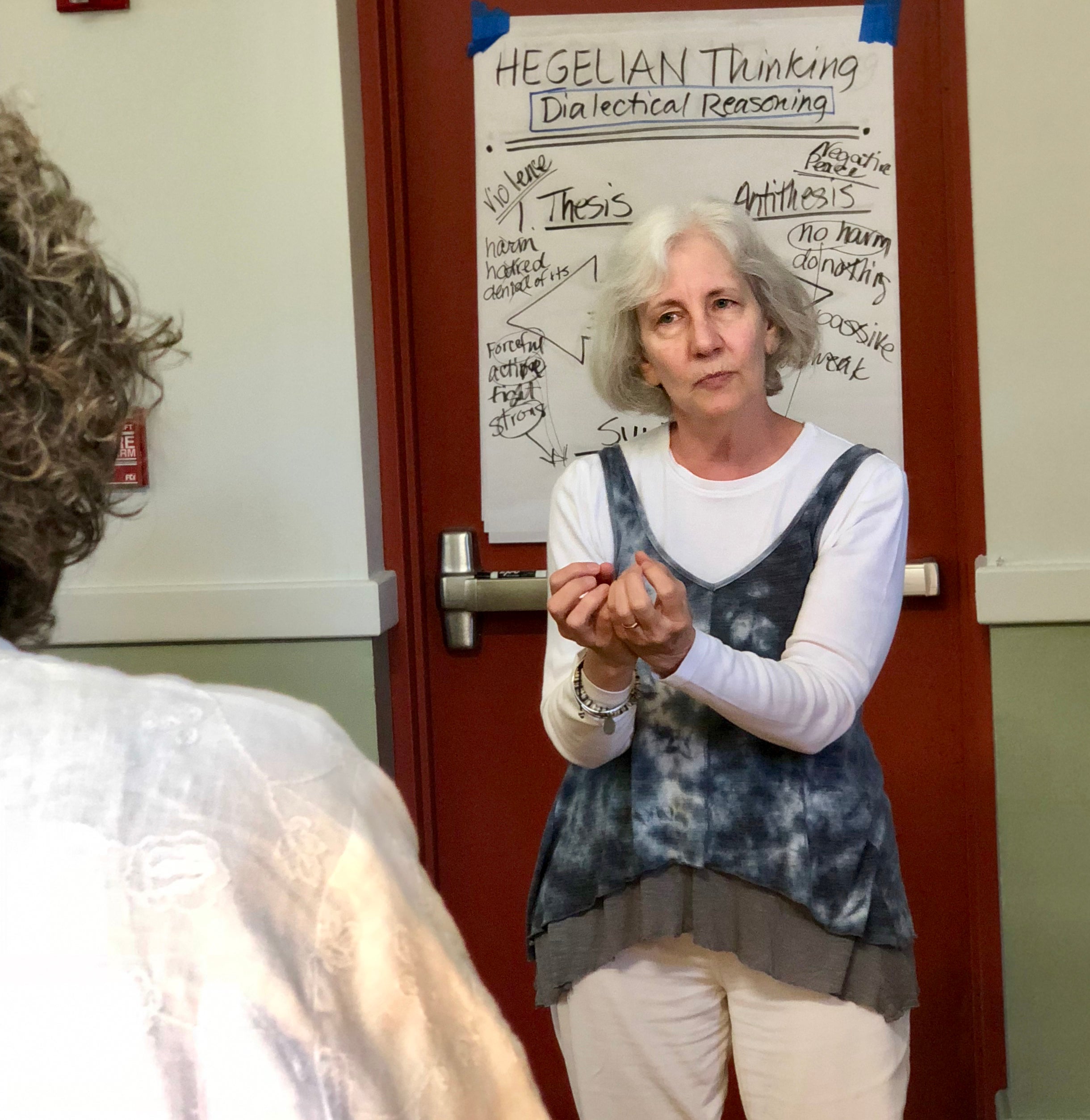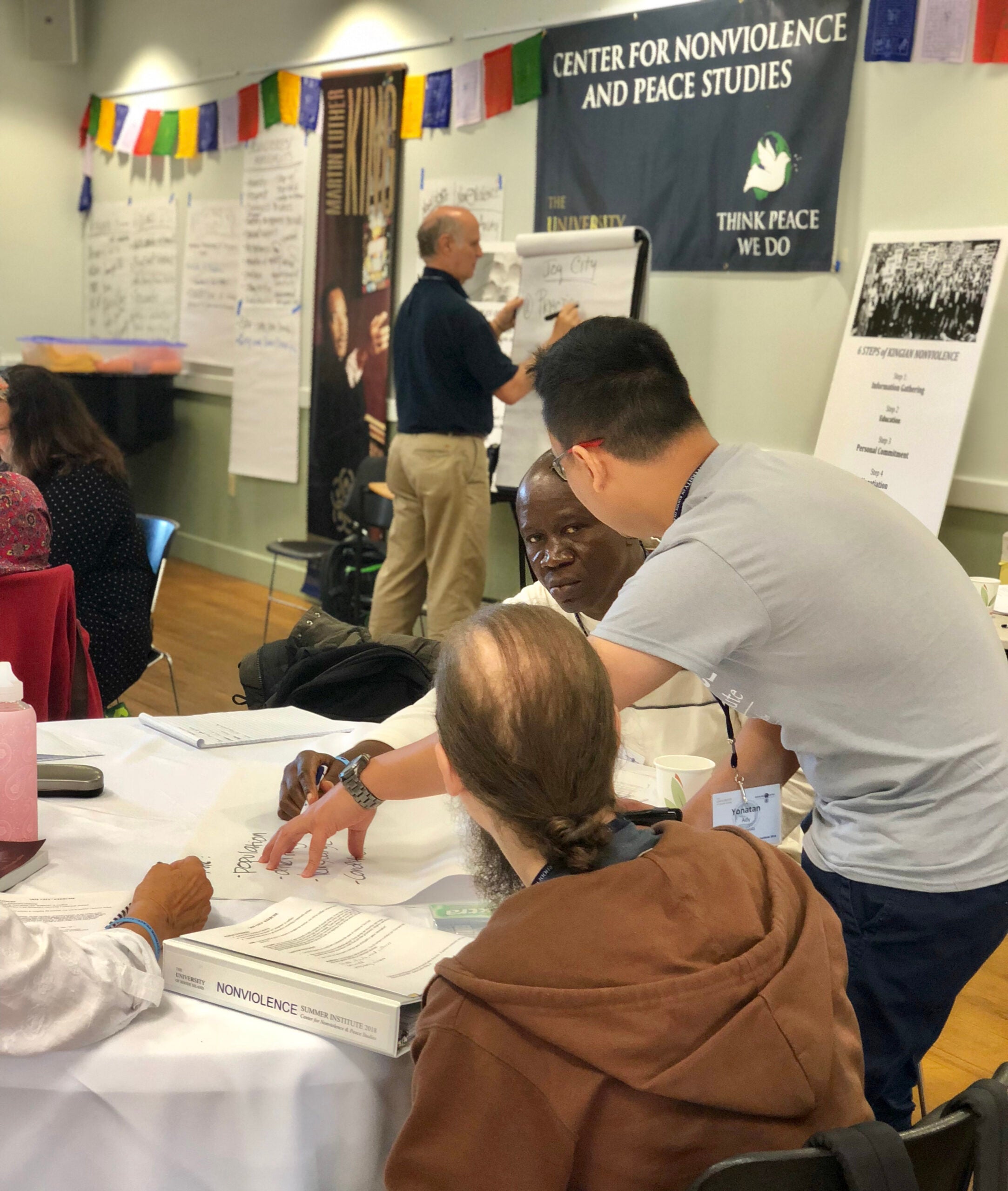KINGSTON, R.I. — June 11, 2018 — The walls of the Hardge Forum inside the Multicultural Student Services Center have contained plenty of meetings, film screenings and discussions by University of Rhode Island students, faculty and community members. This week, they are covered with large easel papers tracking the progress of trainers from all around the world participating in nonviolence training with the University’s Center for Nonviolence and Peace Studies.
From the six Kingian nonviolence principles to what nonviolence means to each individual, the papers communicate the practical and the personal. What they do not convey is the time, effort and discussion that goes into each sheet of paper.
On one morning, Kay Bueno de Mesquita, education coordinator for the center, discussed a model that encompassed one of the main aspects of Kingian thinking. The model known as Hegelian and dialectical reasoning and thinking uses a form of analysis to synthesize the whole truth of a situation.
Participants were given an example and had to establish the thesis and antithesis, analyze the situation, and finally incorporate positive aspects from both sides to arrive at the whole truth. This represents the thinking of King as he drew from a wide range of ideas and philosophies.

Through the use of a Tibetan singing bowl, participants were signaled to move in rotation to learn about different models of social change. The first model, known as the aggression conciliation model, requires practitioners to directly apply their aggression toward conditions and conciliation towards people. Conditions can include inequalities, injustices and everything in between.
The discussion ended with Mecca Smith, a Kingian nonviolence trainer, instructing participants to make a fist with their left hand, raise it in the air, then shake the hand of the person to their left. This symbolizes directing your energy towards changing conditions and offering kindness and reconciliation towards your adversaries.
“This has already been an eye opening experience,” said participant Joshua Richards, pastor of the Lifeplus Church in Bardnersville, Liberia. “Not only have I learned how to apply these practices in a country coming out of 40 years of civil war, I have also learned the importance of healing myself in order to better help others.”
Following the chime of the singing bowl, participants moved to the final model, led by Paul Bueno de Mesquita, center director and a URI psychology professor, and Thupten Tendar, coordinator for the Institute.
The discussion urged trainees to consider the “top-down” effect and how to bridge the gap between those at the top, like politicians, administrators, others in power and those at the bottom, also known as the grassroots. Grassroots groups include women, minorities, students and other disadvantaged groups.
“Conflict can be resolved through communication, negotiation and the use of the top-down model,” Bueno de Mesquita said. “Bridging the gap turns hopelessness into hopeful action.”
Following the completion of the workshops, trainees will then engage in “teach-backs,” during which they learn how to become trainers themselves and take the teachings around the world to their home communities.
Olivia Ross, an intern in the Marketing and Communications Department at URI and public relations major, wrote this press release.

